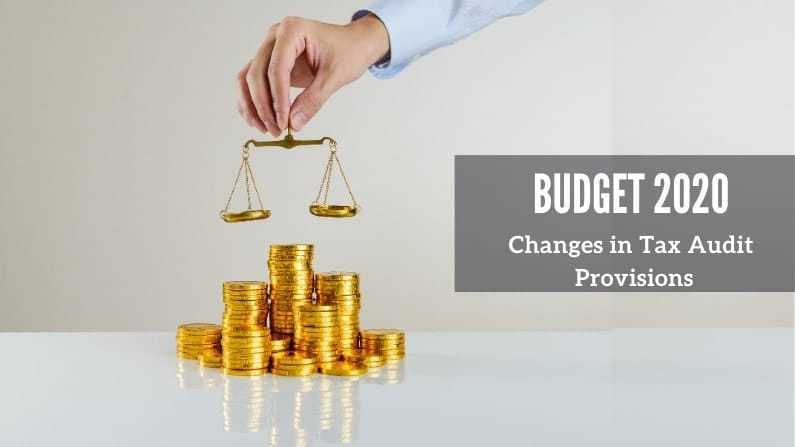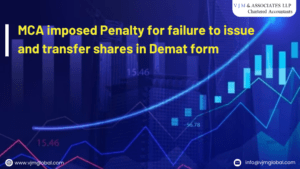Hon’ble Union Finance Minister Nirmala Sitaraman has proposed various changes in her Budget Speech 2020. Amendments in section 44AD is another significant part of the budget 2020 that requires a discussion. As the Budget 2020 releases, there is an increase in threshold limit of Tax Audit. Here in this article, we are going to talk about all the significant changes the finance minister has proposed in provisions of the tax audit.
1. Increase in threshold limit of tax audit from INR 1 crores to INR 5 crores
Through Finance Act, 2020 Government has increased the threshold limit of tax audit from INR 1 crores to INR 5 crores subject to fulfillment of following conditions:
- Aggregate of all amount received, including amount received for sales, turnover or gross receipts during the previous year, in cash during the year doesn’t exceeds 5% of such amount; and
- aggregate of all payments made including amount incurred for expenditure, in cash, during the previous year does not exceed 5% of the said payment.
Therefore, where any person has aggregate turnover not exceeding INR 5 crores but his receipts or payments in cash exceeds 5% of aggregate receipts or payments then such person shall be liable to get his accounts audited under section 44AB.
2. Rational of changes in Tax Audit Provisions
Digitalisation is a fundamental basis of changes that Government has introduced in the Income tax Act. It’s quite evident that, the government is making all the efforts to reduce cash transactions.
Therefore, with an objective to improvise cashless economy, Finance Ministry has given a new incentive to taxpayers. And there is an increase in threshold limit of tax audit. As per the new proposal of waiver of tax audit requirement upto turnover of INR 5 crores subject to the fact that cash receipts or expenditure doesn’t exceeds 5% of aggregate receipts or payments.
3. Provision before Amendments
Similar to company audit, cost audit or stock audit, Indian Income Tax Law also mandates the ‘Tax Audit’. However, Tax Audit is nothing but the process of examining and reviewing the accounts of businesses or professions. The tax audit is necessary to ensure that all applicable provisions of Income Tax Act, 1961 has been duly complied with.
Previously, a taxpayer used to carry out a tax audit if the turnover, sales, or gross business receipts exceeded Rs. 1 crore in a financial year. But now there is an increase in threshold limit of tax audit.
4. Earlier Provisions of Tax Audit
The section 44AB of the Income Tax Act 1961 states the provisions related to tax audit.
The section clearly reflects the rules and regulations related to the maintenance of accounts and several other financial records.
All following persons have a business or work as a professional need to get the tax audit. However, if you have opted for presumptive taxation under section 44AD, 44ADA, 44AE of Income tax act, 1961 you don’t come under this provision.
- A taxpayer having business with total sales, turnover or gross receipts exceeding Rs. 1 crore in a financial year or
- Any Professional having gross receipt exceeding Rs. 50 lakh in a financial year.
- An assessee opting for section 44ADA and 44AD but claims that his income is lower than the profits or gain deemed to be the profit or gain under such section and the income exceeds the taxable amount as per the Income Tax act.
- A taxpayer, opting for section 44AE, 44BB, and 44BBB but claims that his income is lower than the profits computed under the given sections in a financial year
5. Conclusion
Now it’s time for us to end this discussion. Hope you find the article worthy enough! We have all the details related to increase in threshold limit of tax audit through the changes in provisions of tax audit proposed. However, if you have queries anymore let us know through the comment box below.
Read More: COVID-19 Outbreak: Statutory & Regulatory Relief till 30th June 2020 Due to Lock Down






